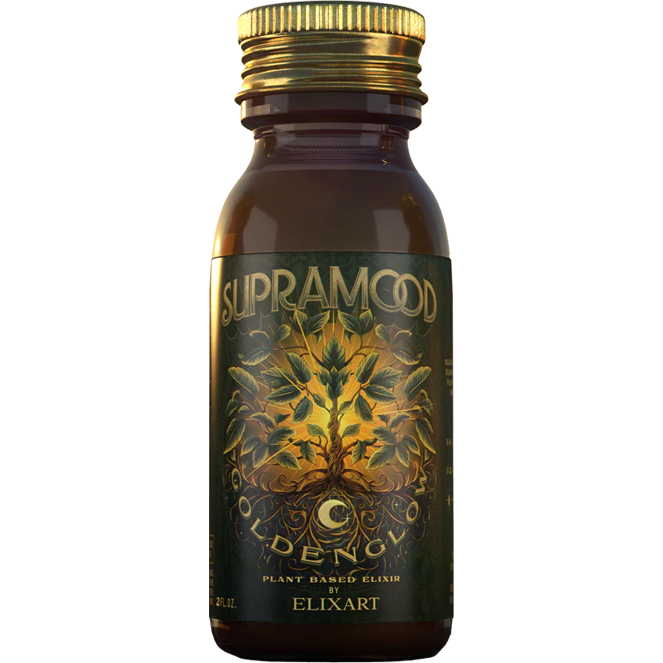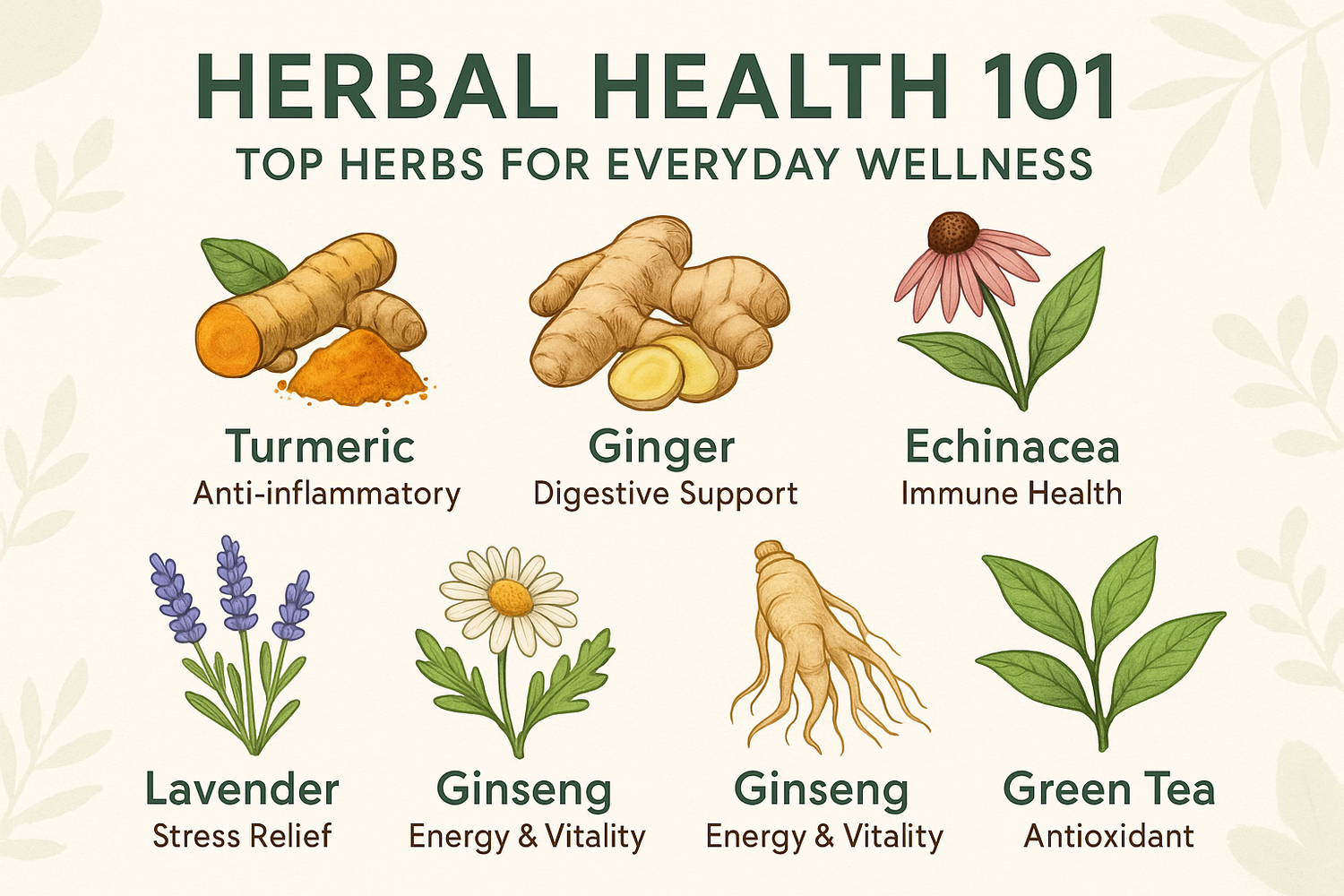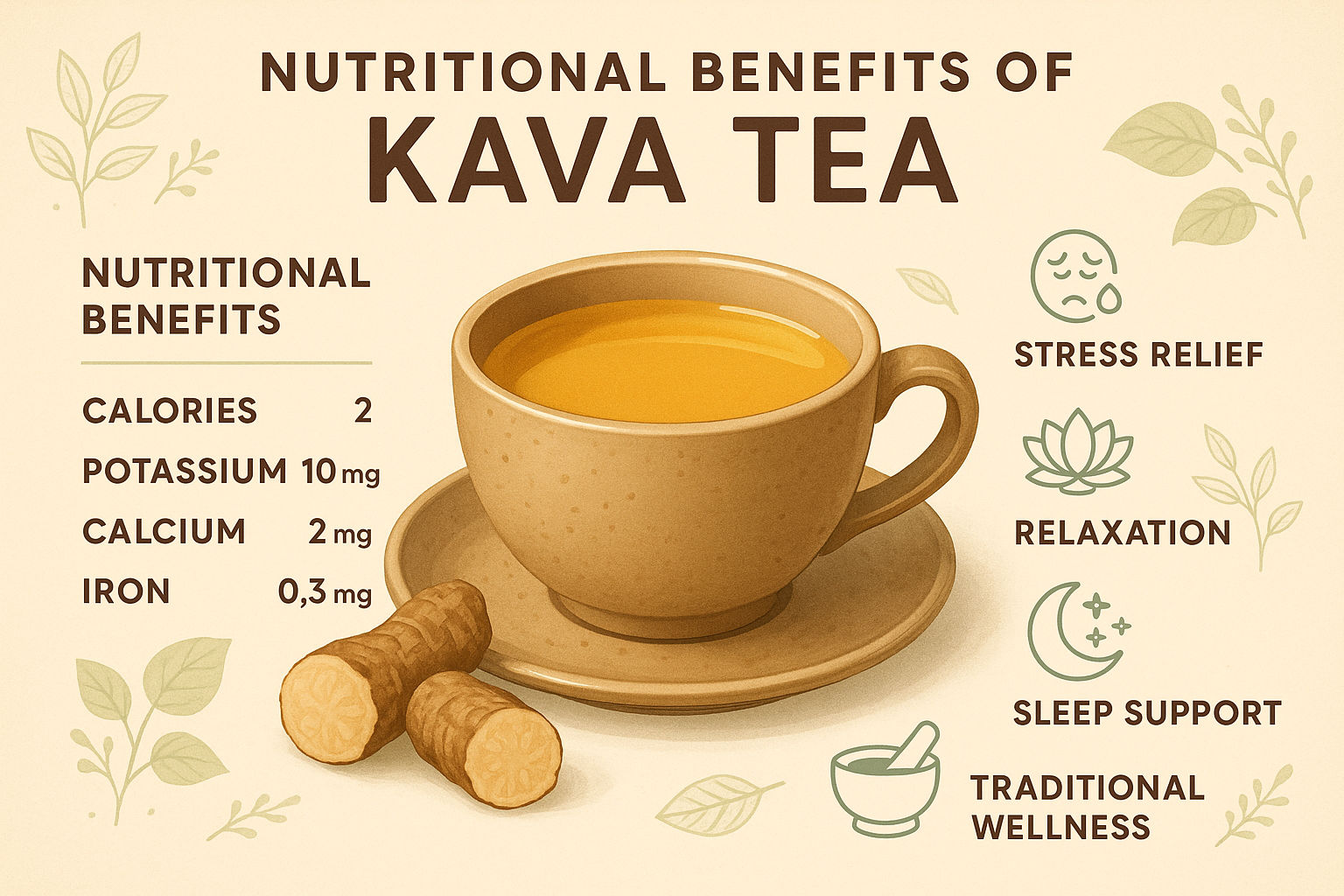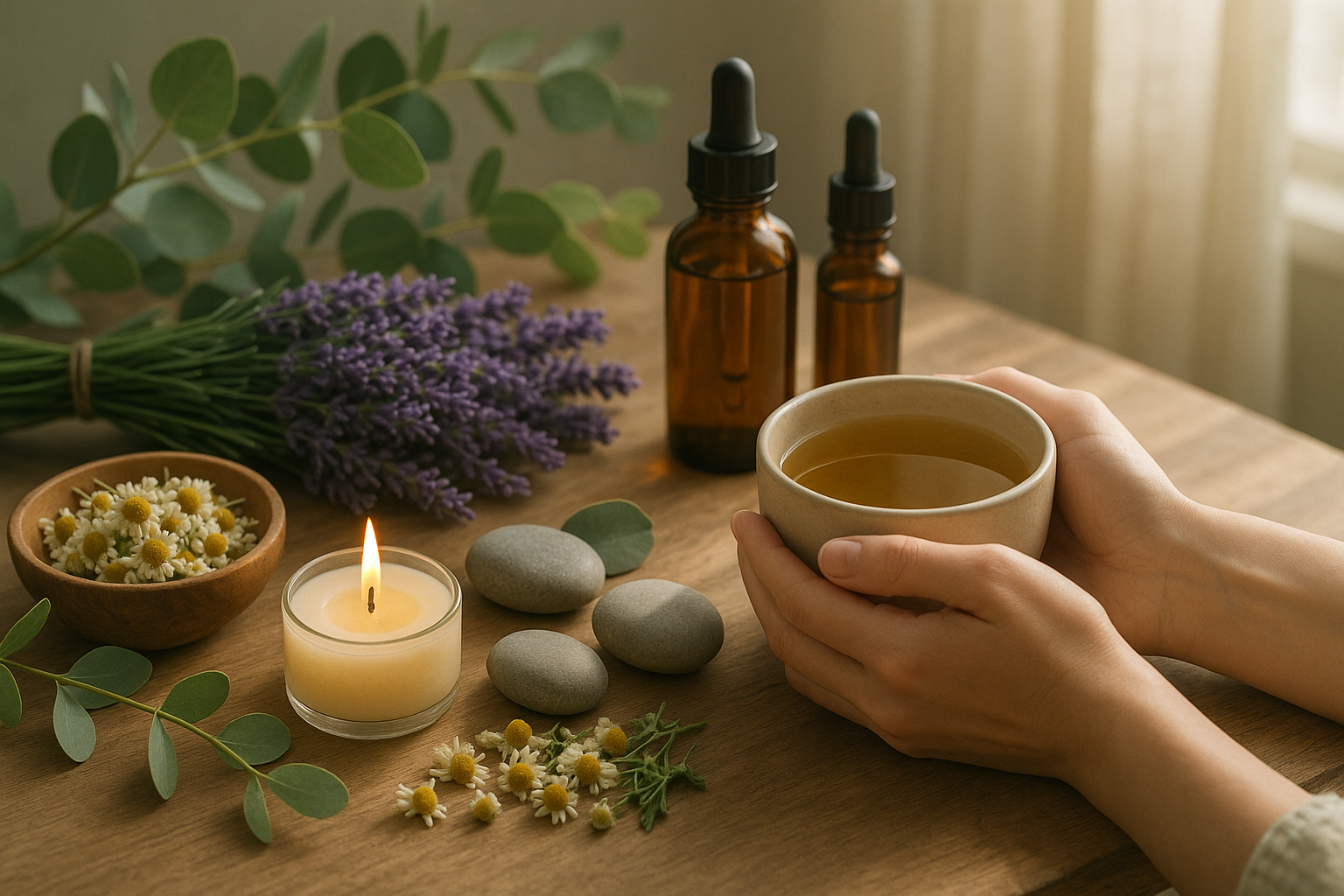Herbal medicine is an ancient practice that involves using plants and their extracts to improve health. This natural approach to healing taps into the healing properties of different herbs, which have been highly regarded for centuries in various cultures.
In this article, we'll explore a handpicked selection of top herbs for everyday wellness, supported by both traditional wisdom and scientific research. From strengthening your immune system to aiding digestion and reducing inflammation, these herbs offer a wide range of benefits that can elevate your daily health routine.
1. Traditional Medicine Systems and the Power of Herbs

Herbal medicine is deeply rooted in various traditional systems around the world, each with its unique approach to healing. Traditional Chinese Medicine (TCM) and Ayurvedic Medicine are two of the most renowned systems that utilize herbs as a cornerstone of their practices.
Traditional Chinese Medicine (TCM)
- Herbal Formulas: TCM often combines multiple herbs into specific formulas to address not just symptoms but also the root cause of ailments.
- Qi and Balance: Herbs in TCM are used to balance Qi (vital energy), yin and yang, and the five elements—wood, fire, earth, metal, and water.
- Common Herbs: Ginseng for vitality, Astragalus for immune support, and Reishi mushrooms for longevity.
Ayurvedic Medicine
- Doshas: Ayurveda focuses on balancing three primary energies or doshas—Vata, Pitta, and Kapha. Each person has a unique constitution that influences their health.
- Holistic Approach: Herbs in Ayurveda are part of a larger system that includes diet, lifestyle, and spiritual practices.
- Popular Herbs: Turmeric for inflammation, Ashwagandha for stress relief, and Tulsi (holy basil) for respiratory health.
These traditions highlight how herbs have been integral to health and well-being for centuries. Their holistic approach offers valuable insights into maintaining balance and harmony within the body.
2. Harnessing the Anti-Inflammatory Properties of Herbs and Spices
Chronic inflammation is increasingly recognized as a root cause of many diseases, including heart disease, diabetes, and arthritis. The role of diet in combating inflammation is significant, presenting an opportunity to harness the power of anti-inflammatory herbs and spices.
Turmeric: A Golden Spice with Powerful Anti-Inflammatory Benefits
Turmeric is renowned for its anti-inflammatory properties, largely attributed to curcumin, its main active compound. Curcumin has been shown to inhibit molecules that play a major role in inflammation. This spice not only reduces inflammation but also offers antioxidant benefits, helping to neutralize free radicals and reduce oxidative stress.
Ways to Incorporate Turmeric:
- Golden Milk: Combine turmeric with milk (or a plant-based alternative), honey, and a pinch of black pepper. Black pepper enhances curcumin absorption.
- Turmeric Smoothie: Blend turmeric with fruits like mango or pineapple, spinach, and coconut water for a refreshing drink.
- Curry Dishes: Add turmeric to curries for both flavor and health benefits.
A simple recipe for Golden Milk:
Ingredients:
- 1 cup milk (or plant-based milk)
- 1 tsp turmeric powder
- 1/4 tsp black pepper
- 1 tsp honey (optional)
Instructions:
- Heat the milk in a small saucepan over medium heat.
- Stir in turmeric and black pepper.
- Simmer for 5 minutes.
- Remove from heat and add honey if desired.
- Serve warm.
Ginger: Beyond Culinary Use, a Potent Anti-Inflammatory Herb
Ginger contains bioactive compounds like gingerol that contribute to its anti-inflammatory effects. Studies have shown that ginger can reduce markers of inflammation and even alleviate pain associated with osteoarthritis.
Forms of Ginger for Consumption:
- Fresh Ginger: Grate into teas or juices for a zesty kick.
- Dried Ginger: Use in powdered form in baking or cooking.
- Ginger Capsules: Convenient for those who prefer supplements.
Each form provides unique benefits:
- Fresh ginger offers potent antioxidant properties.
- Dried ginger concentrates the active compounds.
- Capsules ensure precise dosing.
Exploring Lesser-Known Options: Cumin as an Anti-Inflammatory Agent
Cumin may not be as well-known as turmeric or ginger, but it holds unique aspects that make it effective against inflammation. Rich in antioxidants like apigenin and luteolin, cumin helps combat oxidative stress and inflammatory responses.
Optimal Absorption Tips for Cumin:
- Combine cumin with other spices like black pepper or coriander to enhance bioavailability.
- Include healthy fats such as olive oil when cooking with cumin to improve absorption of its active compounds.
Incorporating these herbs into your diet can provide substantial anti-inflammatory benefits, contributing to overall wellness. Experimenting with different forms and recipes ensures you enjoy both the flavor and health advantages they offer.
3. Supporting a Strong and Balanced Immune System
Herbs have been highly regarded for their ability to strengthen the immune system for centuries. When facing stress or illness, incorporating these natural helpers into your daily routine can support overall well-being. While there are many herbs known for their immune-boosting properties, one herb stands out for its extensive research and widespread use: Echinacea.
Echinacea's Impact on Immunity: Examining the Research
Echinacea is a group of flowering plants in the daisy family that has been used in traditional medicine for a long time. It is particularly valued for its potential to enhance the immune system.
Key Components and Effects on the Immune System
The immune-boosting properties of echinacea are attributed to several active compounds:
- Alkamides: These compounds affect the activity of immune cells, such as macrophages and cytokines.
- Chicoric acid: Known for its antioxidant properties, this acid helps reduce oxidative stress and supports overall immune function.
- Polysaccharides: These complex carbohydrates stimulate the activity of white blood cells, enhancing the body’s defense mechanisms.
Clinical studies have extensively explored these components. Some notable findings include:
- A study published in Phytomedicine highlighted that echinacea extract could reduce the duration and severity of colds.
- Another research in The Lancet Infectious Diseases journal showed that echinacea might decrease the risk of recurrent respiratory infections.
Different Forms of Echinacea Supplements
Echinacea is available in various forms, each with its own benefits and things to consider:
Capsules
- Pros: Convenient and easy to take, capsules are ideal for those who prefer a standardized dosage.
- Cons: Some users might find capsules less effective compared to other forms due to differences in how they are absorbed by the body.
Tinctures
Tinctures are concentrated liquid extracts made by soaking echinacea in alcohol or glycerin.
- Pros: Quickly absorbed by the body and allows for easy adjustment of dosage. Tinctures can be mixed into water or juice.
- Cons: The taste can be strong and unpleasant for some individuals. Tinctures that contain alcohol may not be suitable for everyone.
Teas
Echinacea tea provides a calming way to enjoy this herb.
- Pros: Offers hydration along with immune benefits. Teas can be combined with other herbs like peppermint or ginger for added flavor and extra health advantages.
- Cons: Requires time for preparation, and effectiveness may vary depending on how long it is brewed.
Exploring different forms gives you the opportunity to discover what works best for your lifestyle and preferences. Trying out various methods of preparation can also ensure that you get the full range of benefits echinacea has to offer.
To further enhance your understanding of echinacea's potential, there are additional research studies that delve into its medicinal properties. These studies explore topics such as its antioxidant activity, potential anti-inflammatory effects, and its ability to inhibit harmful bacteria growth:
- A study published in the Journal of Agricultural and Food Chemistry suggests that echinacea extracts possess significant antioxidant activity, which
4. Nurturing Digestive Harmony with the Power of Herbs
Maintaining a healthy digestive system is crucial for overall well-being. The digestive system breaks down food, absorbs nutrients, and eliminates waste, playing a vital role in energy levels, immune function, and even mental health. When the digestive system is out of balance, it can lead to discomforts such as bloating, indigestion, and more serious conditions like irritable bowel syndrome (IBS).
Peppermint: A Soothing Herb for Digestive Health
Peppermint is widely recognized for its soothing effect on the digestive tract. Scientific evidence supports its efficacy in alleviating various digestive issues:
- Relief from IBS Symptoms: Studies have shown that peppermint oil can help reduce symptoms of IBS, including abdominal pain and bloating.
- Antispasmodic Properties: Peppermint's active compound, menthol, has antispasmodic effects that help relax the muscles of the gastrointestinal tract.
- Digestive Aid: Regular consumption of peppermint tea can aid digestion by stimulating bile flow and reducing gas.
Various Ways to Experience Peppermint's Digestive Benefits
Incorporating peppermint into your routine can be simple and enjoyable. Here are some practical ways to leverage its digestive benefits:
Herbal Tea Recipe for Relieving Indigestion and Bloating
An easy way to enjoy peppermint’s benefits is through herbal tea. Here's a simple recipe:
Ingredients:
- 1 tablespoon dried peppermint leaves or a handful of fresh leaves
- 1 cup boiling water
- 1 teaspoon honey (optional)
Instructions:
- Place the peppermint leaves in a teapot or infuser.
- Pour boiling water over the leaves.
- Let steep for 5-7 minutes.
- Strain the tea into a cup and add honey if desired.
Drinking this tea after meals can help relieve indigestion and bloating.
Potential Side Effects or Contraindications of Peppermint Oil Use
While peppermint is generally safe for most people, it's important to be aware of potential side effects and contraindications:
- Heartburn: In some cases, peppermint may worsen heartburn symptoms due to its relaxing effect on the lower esophageal sphincter.
- Allergic Reactions: Although rare, some individuals may experience allergic reactions to peppermint.
- Pre-existing Conditions: Those with gallstones or severe liver damage should consult a healthcare professional before using peppermint oil.
By understanding these considerations, you can safely incorporate peppermint into your wellness routine.
Achieving digestive harmony with herbs like peppermint not only alleviates discomfort but also contributes to better nutrient absorption and overall health.
5. Herbs That May Aid in Blood Sugar Contro l
l
Stabilizing Blood Glucose Levels with Herbs
Herbs have long been recognized for their potential to help stabilize blood glucose levels. By incorporating specific herbs into your diet, you can complement a balanced diet and lifestyle approach to managing blood sugar. One such herb is cinnamon, a spice renowned for its blood sugar regulation properties.
Understanding Ceylon vs. Cassia Cinnamon
Cinnamon comes in two primary varieties:
- Ceylon Cinnamon: Often referred to as "true cinnamon," Ceylon has a lighter color and sweeter, more delicate flavor.
- Cassia Cinnamon: More common and less expensive, Cassia has a darker color and a stronger, spicier flavor.
Potential Toxicity: It's important to note that Cassia cinnamon contains higher levels of coumarin, a compound that can be toxic to the liver in large amounts. Ceylon cinnamon, on the other hand, has much lower levels of coumarin, making it a safer option for regular use.
Creative Culinary Uses for Cinnamon
Cinnamon is versatile and can be incorporated into various dishes beyond desserts:
- Breakfast Boost: Sprinkle cinnamon on oatmeal or yogurt to add flavor and enjoy its blood sugar-lowering benefits.
- Savory Dishes: Add a pinch of cinnamon to chili or curry for an unexpected depth of flavor.
- Smoothies: Blend cinnamon into your morning smoothie for an extra health kick.
- Beverages: Infuse hot drinks like tea or coffee with cinnamon sticks for a warming, aromatic experience.
Incorporating these culinary tips allows you to enjoy the benefits of cinnamon throughout the day without feeling limited to sweet dishes.
Scientific Support for Cinnamon's Benefits
Research supports the use of cinnamon for blood sugar control:
- A study published in the Journal of Medicinal Food found that consuming cinnamon significantly reduced fasting blood glucose levels.
- Another study in Diabetes Care indicated that cinnamon might improve insulin sensitivity in individuals with type 2 diabetes.
These findings highlight the potential of cinnamon as a beneficial addition to your wellness routine.
Practical Tips for Using Cinnamon Safely
To maximize the benefits while minimizing risks:
- Opt for Ceylon cinnamon when possible.
- If using Cassia cinnamon, limit consumption to small amounts.
- Consult with a healthcare professional before making significant changes to your diet or if you have pre-existing conditions.
Embracing these guidelines helps ensure you're reaping the health benefits safely.
Incorporating Other Herbs for Blood Sugar Control
Cinnamon isn't the only herb that may aid in blood sugar regulation. Consider exploring:
- Fenugreek: Known for its ability to improve insulin function and reduce fasting glucose levels.
- Bitter Melon: Traditionally used in Asian cuisine, this fruit has compounds that mimic insulin's effects.
- Berberine: Found in several plants like goldenseal and barberry, berberine may help lower blood sugar by decreasing glucose production in the liver.
Utilizing these herbs alongside dietary modifications can further support your efforts in maintaining balanced blood glucose levels.
By integrating these herbs into your daily routine thoughtfully, you can improve not just your meals' flavor but also your overall well-being.
Exploring the Rich Flavors and Health Benefits of Mediterranean Herbs
The Mediterranean diet is celebrated for its array of health benefits, including promoting heart health, reducing the risk of chronic diseases, and fostering longevity. Integral to this dietary pattern are herbs, which not only enhance the flavor of dishes but also contribute to nutritional value. Two standout herbs in this culinary tradition are parsley and oregano.
1. Parsley: More Than Just a Garnish, a Nutrient-Packed Herb
Parsley often finds itself relegated to a mere garnish on plates, but this humble herb is a powerhouse of nutrients.
Vitamin Content
Parsley is rich in vitamins A, C, and K:
- Vitamin A supports vision and immune function.
- Vitamin C acts as an antioxidant and bolsters the immune system.
- Vitamin K plays a crucial role in bone health by aiding calcium absorption.
Immune Function
The high levels of vitamins A and C in parsley help strengthen the body's natural defenses against infections and diseases. Incorporating parsley into your meals can be simple:
- Salads: Add chopped fresh parsley to salads for an extra nutrient boost.
- Smoothies: Blend it into green smoothies for added vitamins.
- Pesto: Use it as a base for pesto sauce along with garlic, olive oil, and nuts.
In fact, incorporating parsley into your diet can support immune health through its high vitamin content.
Bone Health
Vitamin K in parsley ensures proper bone formation and maintenance, reducing the risk of fractures. So make sure you're not ignoring that sprig of parsley on your plate!
2. Oregano: From Ancient Greece to Your Spice Rack, a Versatile Mediterranean Herb
Oregano has been used since ancient times for its medicinal properties and remains a staple in modern kitchens due to its robust flavor and numerous health benefits.
Antioxidant Properties
Oregano contains potent antioxidants like thymol and rosmarinic acid. These compounds help neutralize free radicals in the body, reducing oxidative stress and lowering the risk of chronic diseases. In fact, research underscores oregano's disease-fighting potential:
- Studies have shown that oregano's antioxidants can inhibit bacterial growth.
- Antioxidants in oregano may also play a role in cancer prevention by protecting cells from DNA damage.
Natural Remedies
Oregano oil is renowned for its therapeutic uses:
- Colds and Coughs: Oregano oil can be used as a natural remedy for respiratory ailments. Its antimicrobial properties help fight off bacteria and viruses. WebMD has more information on this.
- Usage Tip: Add a few drops of oregano oil to steaming water for inhalation or mix with carrier oils for topical application.
- Digestive Health: Oregano oil can aid digestion by stimulating bile flow.
- Usage Tip: Place a drop or two under your tongue or add it to herbal teas.
Incorporating oregano into everyday cooking elevates
Incorporating Herbs into Your Everyday Wellness Routine
Herbal Health 101 emphasizes the importance of making herbs a part of your daily life. Exploring the world of herbs can be both exciting and beneficial, but it's vital to approach this journey with curiosity and caution. Consulting with a healthcare professional ensures that you make informed choices tailored to your specific health needs.
Starting with a few key herbs from this article allows you to gradually experience their benefits:
- Turmeric: Add it to smoothies or curries for its anti-inflammatory properties.
- Ginger: Use fresh ginger in teas or stir-fries for digestive support.
- Cumin: Enhance your dishes with ground cumin for its unique flavor and potential weight loss benefits.
- Peppermint: Enjoy peppermint tea to soothe digestion.
- Echinacea: Opt for echinacea supplements during cold seasons to bolster your immune system.
- Cinnamon: Sprinkle Ceylon cinnamon on oatmeal or yogurt for blood sugar control.
- Parsley & Oregano: Incorporate these Mediterranean herbs into salads and sauces for added nutrients.
Engage with these herbs based on your personal preferences and health goals. This methodical approach helps you build a sustainable wellness routine that leverages the power of herbal medicine.
FAQs (Frequently Asked Questions)
What is the role of herbal medicine in promoting health and well-being?
Herbal medicine plays a significant role in promoting health and well-being by offering natural remedies that have been backed by both traditional wisdom and scientific research. In this article, we will explore a curated list of top herbs for everyday wellness, encouraging readers to incorporate these herbs into their daily routine for maximum benefits.
What are some traditional medicine systems that utilize herbs as a cornerstone of healing?
Traditional Chinese Medicine and Ayurvedic Medicine are two traditional medicine systems that utilize herbs as a cornerstone of healing. These herbal traditions have been practiced for centuries and continue to offer valuable insights into the power of herbs for maintaining wellness.
How can herbs and spices help combat chronic inflammation?
Herbs and spices, such as turmeric, ginger, and cumin, have anti-inflammatory properties that can help combat chronic inflammation, which is considered a root cause of many diseases. These natural ingredients can be incorporated into daily meals and beverages to support overall health.
What is the impact of echinacea on immunity, and what are the different forms available for supplementation?
Echinacea has immune-modulating effects due to its key constituents. Clinical studies have provided valuable insights into its impact on immunity. Echinacea is available in various forms for supplementation, including capsules, tinctures, and teas, each with its own set of pros and cons.
How does peppermint contribute to digestive health, and what are some ways to experience its benefits?
Peppermint is known for its soothing effect on the digestive tract, supported by scientific evidence. It can be experienced through herbal tea recipes designed to relieve indigestion and bloating. However, it's important to be aware of potential side effects or contraindications when using peppermint oil.
What are some creative culinary uses for incorporating cinnamon into dishes other than desserts?
Cinnamon can help stabilize blood glucose levels when incorporated into a balanced diet. Beyond desserts, cinnamon can be creatively used in savory dishes to add depth of flavor while contributing to blood sugar regulation. It's also important to consider the differences between Ceylon and Cassia cinnamon in terms of flavor and potential toxicity.







Leave a comment
This site is protected by hCaptcha and the hCaptcha Privacy Policy and Terms of Service apply.